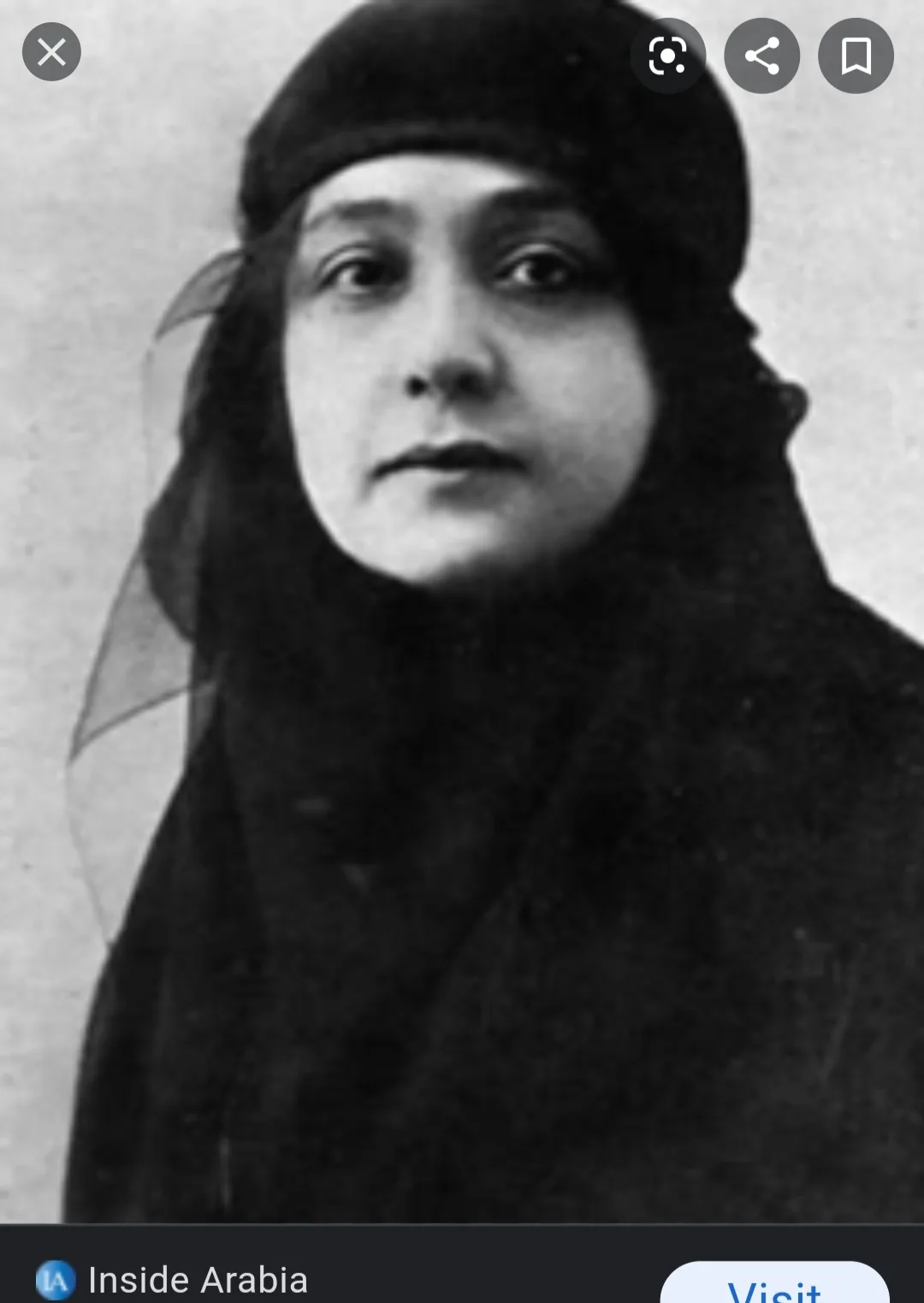
1178: Hudā Shaʿrāwī
Founder of the Egyptian Feminist Union
Born: 23 June 1879, Al-Minyā, Egypt
Died: 12 December 1947, Cairo, Egypt
Also Spelled: Huda Sharawi or Huda Shaarawi
Huda was an Egyptian Nationalist and is recognized by many as the founder of Egypt’s women’s movement.
Huda spoke French, Turkish, and Arabic. Being born into a well-to-do family meant Huda was raised in relative comfort. Her father was a landowner and held several political appointments in the Egyptian government, eventually becoming a member of the Chamber of Delegates in 1876. However, just because her family had wealth did not mean Huda had a happy home life. Because of her upper-class station, Huda was raised under the Egyptian harem system, which meant she was mostly sequestered to her family’s apartments, and when she was allowed to go outside Huda was required to wear a face covering.
When Huda was thirteen, she was married to her much-older cousin (he was already in his forties). Luckily for Huda, she was able to live separately from her husband for seven years, during which time she continued to educate herself, but eventually she would have to cohabitate with her husband and eventually have two children with him. The main reason Huda was able to leave her husband for several years is because of their marriage contract, which stated Huda’s husband would have to stop seeing his slave-concubine. However, a year after he and Huda wed, the slave woman gave birth to a child. Huda was able to leave her less-than-faithful husband for several years as a result, but did eventually have to return to him.
In 1908, she founded the first secular philanthropic society run by Egyptian women. The society helped provide medical needs to underprivileged women and children in Egypt.
In 1910, she opened a school for girls to teach them academic pursuits as opposed to practical skills. Most schools for girls at the time taught midwifery or other life skills and not academia.
In 1919, she helped organize the largest women’s anti-British demonstration. Huda and her husband were both strong supporters of Egypt’s independence movement from Britain, and so in 1920 Huda founded and served as president of the Wafdist Women’s Central Committee (the Wafd Party was a political party founded by her husband).
In 1923, Huda removed her veil in public. That same year she founded the Egyptian Feminist Union. This was after the death of her husband, which allowed Huda to shift her political activism away from Egyptian independence and towards instead women’s rights. Huda had attended a conference in Europe, and when she returned to Egypt, she chose to remove her veil in a public train station on her way home. The action stunned the crowds around her, and within ten years few Egyptian women still chose to wear a veil in public.
Huda went on to help found magazines such as L’Égyptienne (later Al-Misriyyah) in 1925 as part of the Egyptian Feminist Union and Al-Marʾah al-Arabiyyah (“The Arab Woman”) in 1946 from the Arab Feminist Union. Mudhakkirātī (Harem Years: The Memoirs of an Egyptian Feminist) was published posthumously in 1986 or 1987 (sources differ).
Huda was the Vice-President of the International Alliance for Women’s Suffrage and Equal Citizenship.
In her later years, she also became an advocate for a Palestine free of British intervention and pushed for Arabic and Muslim rights in the area as well.
*Author’s Note*
I definitely feel as though I am having some sort of Mandela Affect as I work on Huda’s biography. I know several years back, when I first heard Huda’s story, I made a note that Jason Porath, author of the Rejected Princess books, wrote an article about Huda and briefly mentioned she may have participated in some form on genocide. I know that I read these exact details because I made that note in my earliest written entry for Huda on my personal list. However, several years on now, not only can I find no mention of Huda being involved in any genocide on any of the readily available sources online, I also cannot find any articles about Huda written by Jason Porath. I am very confused as to what happened with this article and how it could have been scrubbed from the internet, so if anyone sees this in the future and can help me track it down I would very much appreciate the help.
Sources:
https://www.britannica.com/biography/Huda-Sharawi
https://amazingwomeninhistory.com/huda-shaarawi-egyptian-feminist/
